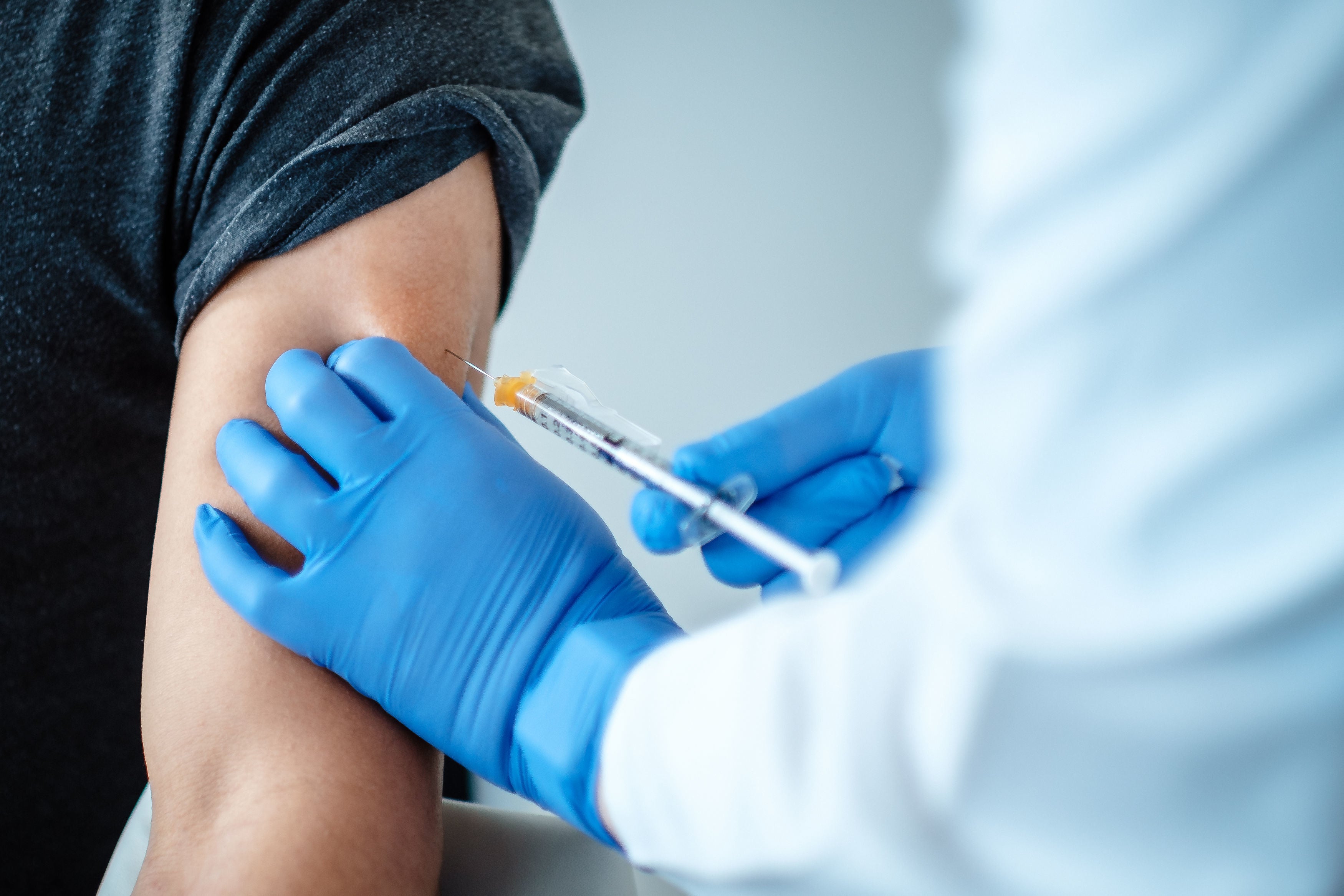UK must do more to tackle vaccine hesitancy, report warns as more than a third of people say they may not accept jabs
Government must ‘generate an open dialogue that addresses misinformation’, says expert

Your support helps us to tell the story
From reproductive rights to climate change to Big Tech, The Independent is on the ground when the story is developing. Whether it's investigating the financials of Elon Musk's pro-Trump PAC or producing our latest documentary, 'The A Word', which shines a light on the American women fighting for reproductive rights, we know how important it is to parse out the facts from the messaging.
At such a critical moment in US history, we need reporters on the ground. Your donation allows us to keep sending journalists to speak to both sides of the story.
The Independent is trusted by Americans across the entire political spectrum. And unlike many other quality news outlets, we choose not to lock Americans out of our reporting and analysis with paywalls. We believe quality journalism should be available to everyone, paid for by those who can afford it.
Your support makes all the difference.More than a third of Britons are either uncertain or unlikely to accept a vaccination against Covid-19, a report has warned.
Experts have called for a an open dialogue to be had with the public to address fears about vaccine safety and counter misinformation surrounding vaccinations.
The report, published today by the British Academy and the Royal Society for the SET-C (Science in Emergencies Tasking: Covid-19) group says an 80 per cent take up of a coronavirus vaccine could be necessary to protect the community.
However, it warns that given the scale and complexity of the task, vaccines will not be a silver bullet. The rapid review recommends that the Government begins to tackle the challenge of vaccine hesitancy immediately to ensure effective vaccine coverage.
The authors of the report also said there was an urgent need to clarify to the public that “life will not immediately return to normal”, adding that “non-pharmaceutical interventions” - such as wearing face masks and social distancing - will remain in place during a vaccine deployment period.
“Transparent dialogue and community engagement with the general public about vaccine deployment must begin immediately, respecting emotions and real concerns, as opposed to a one-way information supply,” it urged.
The report also showed that recent levels of seasonal flu vaccinations can be low even among health care support staff (37 per cent) and doctors (40 per cent), and in regions such as London.
Professor Melinda Mills, director of the Leverhulme Centre for Demographic Science at the University of Oxford and lead author of the report, said: “Vaccines and vaccination are two very different things. To achieve the estimated 80 per cent of uptake of the vaccine required for community protection, we need a serious, well-funded and community-based public engagement strategy.
“There needs to be a frank conversation with the public about just how long it will take and that things will not immediately go back to normal when vaccines arrive.
“We must learn from lessons of history and move away from the one-way provision of information and instead generate an open dialogue that addresses misinformation and does not dismiss people’s real vaccine concerns and hesitancy.
“And critically, when the time comes, we need to make vaccination itself convenient,” she added.
Recommendations to the Government for an immediate response to tackling vaccine hesitancy also included building on existing immunisation programmes, such as ensuring that vaccinations are available at weekends and evenings at GP surgeries and other sites.
It also suggested implementing a decentralised local vaccination programme, with tool kits to support local authorities with community engagement. Such a programme would have to include tailored messaging in multiple languages to “reach diverse populations and mobilise local communities”.
The government should also “counter misinformation and fill real knowledge voids by empowering the public to spot and report misinformation”, as well as ensure media companies are held accountable to remove harmful information and punishing those who spread misinformation.
The authors cited several main vaccine and Covid-19 conspiracy theories responsible for spreading misinformation and uncertainty among members of the public.
Among the myths are the belief that coronavirus is a hoax and therefore needs no vaccine; that Bill Gates is involved in a vaccination plot to implant microchips into people; that big pharma and scientists will use Covid-19 vaccinations to make money; and the conspiracy theory that Covid-19 is caused by 5G mobile phone towers.






Join our commenting forum
Join thought-provoking conversations, follow other Independent readers and see their replies
Comments